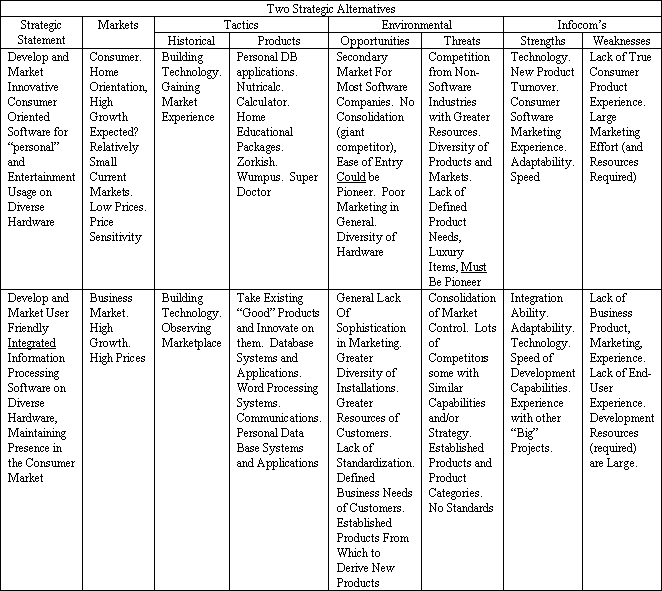
Mort Rosenthal's "Two Strategic Alternatives" for the company to pursue, presented at the Board meeting on January 12, 1982.
From the start the company wanted to make serious software. Games were used as a seed for the company in its first years. But now in 1982 the company had enough resources to pursue something more serious and ambitious.
The higher profit margins in business software also drove the decision to move beyond games. The customers of business software typically were willing to spend more money than mass consumers. Infocom could therefore charge more for its products. Whereas a copy of Lotus 1-2-3 listed around $495, each of Infocom's games sold for around $49.95. Furthermore, business software sells consistenly throughout the year, whereas game software sells mostly (around 75%) during the fourth quarter (christmas), something investors don't like.
Many of the founders also believed that Infocom needed to diversify its product line to continue to grow. In particular, Vezza believed that while the games made money, they would "not last forever." Consumers had fickle tastes. At any point, people might cease to enjoy Infocom's games, abandoning them in favor of something else. The business products market, however, differed in that respect. Customers of business software tended to invest heavily into applications and stick with them for a relatively long period of time.
To diversify its products, two options existed for Infocom: produce different kinds of entertainment software or tackle business products. Mort Rosenthal, Vice-President for Marketing and Finance, wrote up some of the advantages and disadvantages of both approaches.

In the end, it was decided to got with Business software.
"We didn't want to be a $10 million company. We wanted to be a $100 million company." Tim Anderson